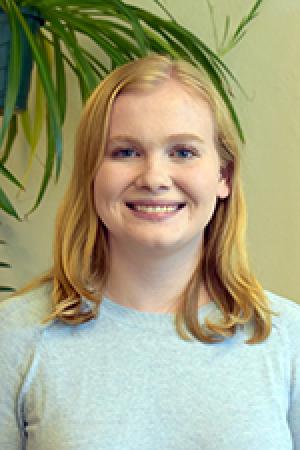People
Erika DeAngelis
-
Pronouns: she, her, hers
-
Instructor
I am a recent graduate of ICD's Developmental Psychology PhD program and have been instructing courses in the department since 2022.
PhD in Developmental Psychology, University of Minnesota, 2024
BA Psychology & Spanish, Amherst College, 2019
Cognitive development; Early childhood education; Learning; Social and emotional development
I am a recent graduate of ICD's Developmental Psychology PhD program and have been instructing courses in the department since 2022. In addition to teaching a course at ICD this year, I am currently a Visiting Assistant Professor in the Psychology department at Macalester College. I am passionate about translating developmental psychology research into knowledge that feels accessible and inspiring to students from all backgrounds.
My research training is in the development of social cognition, and I specifically explore how preschool and early school age children understand and use testimony to learn from others. I am also interested in the development of children’s social biases and prejudice and how these biases undermine children's social learning.
Courses taught:
CPSY 3308W Introduction to Research Methods in Developmental Science
CPSY 4302 Infant Development
CPSY 4303 Adolescent Psychology
CPSY 2301 & 3301 Introduction to Child Psychology
DeAngelis, E. R., Glaspie, N., Bisla, I., Pesch, A., & Koenig, M. A. (in press). When trust and mistrust are misplaced: Lessons in early childhood. In K. J. Rotenberg (Ed.), The Handbook of Trust and Social Psychology. Edward Elgar Publishing.
DeAngelis, E. R., Glaspie, N., Bisla, I., Pesch, A., & Koenig, M. A. (in press). Trust in testimony: acquiring knowledge and developing social understanding. In K. J. Rotenberg (Ed.), The handbook of trust and social psychology. Edward Elgar Publishing.
Li, P., DeAngelis, E., Glaspie, N., & Koenig, M. (2023). The collaborative nature of testimonial learning. Topics in Cognitive Science, 00, 1-16. doi: 10.1111/tops.12707
DeAngelis, E. R., Ridge, K. E., Gelman, S. A., Reyes-Jaquez, B., & Koenig, M. A. (2023). Understanding the value of non-obvious testimony: With age, A predominantly White, Midwestern sample of children prefer speakers who go beyond the evidence. Journal of Experimental Child Psychology, 231, 105652. doi: 10.1016/j.jecp.2023.105652
Palmquist, C. M., DeAngelis, E. R. (2020). Valence or traits? Developmental change in children's use of facial features to make inferences about others. Cognitive Development, 56. https://doi.org/10.1016/j.cogdev.2020.100948
Palmquist, C. M., Cheries, E. W., & DeAngelis, E. R. (2020). Looking Smart: Preschoolers’ judgments about knowledge based on facial appearance. British Journal of Developmental Psychology, 38(1), 31-41. doi: 10.1111/BJDP.12303
Sumner E, DeAngelis E, Hyatt M, Goodman N, Kidd C (2019). Cake or broccoli? Recency biases children’s verbal responses. PLoS ONE 14(6): e0217207. https://doi.org/10.1371/journal.pone.0217207

-
Institute of Child Development
Carmen D. and James R. Campbell Hall
51 East River Parkway
Minneapolis, MN 55455 - deang040@umn.edu